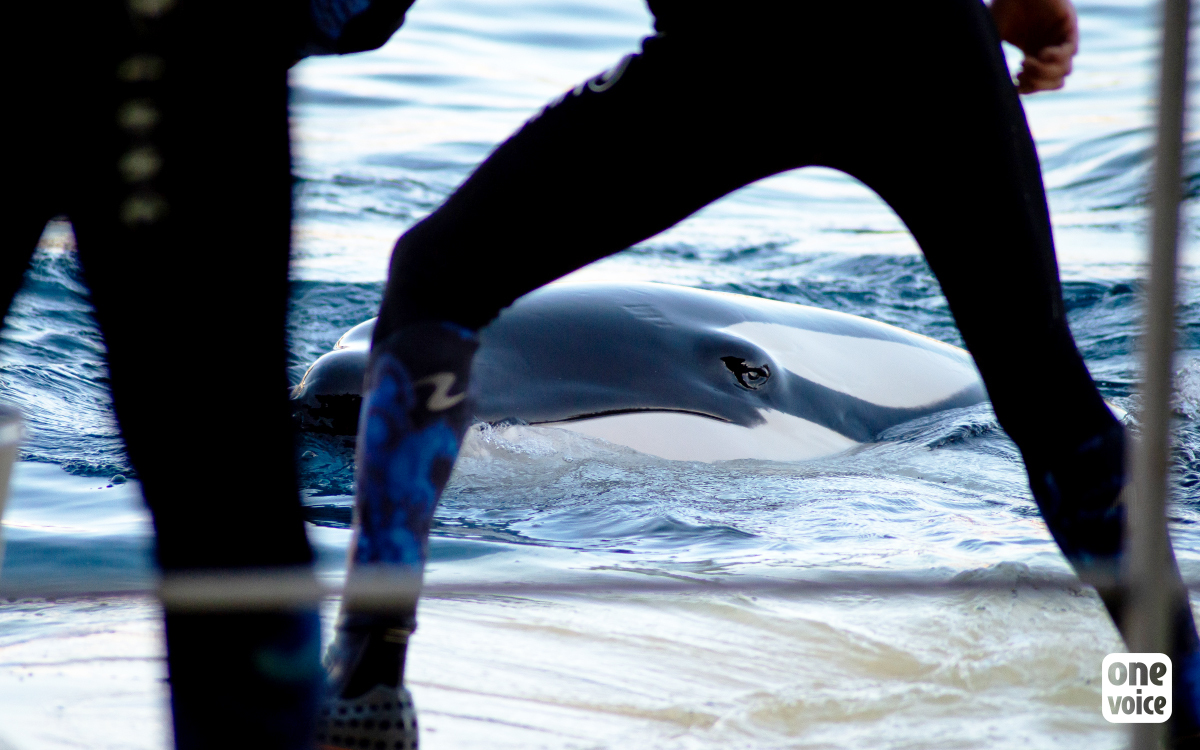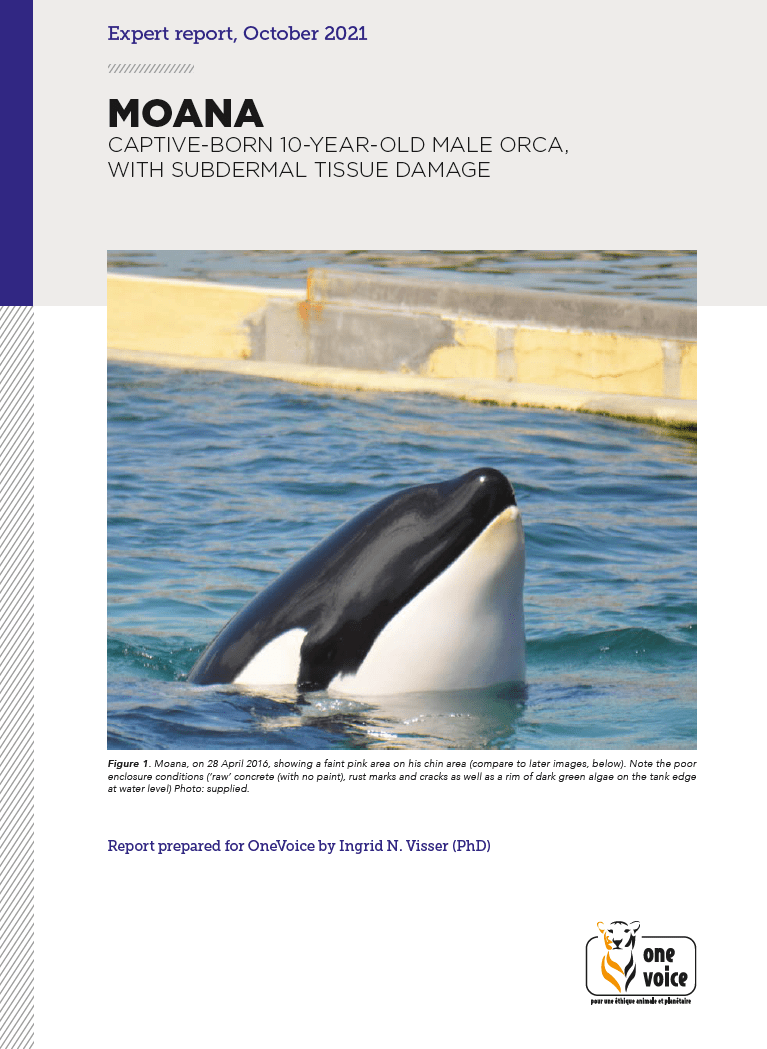

Moana, a young orca in a pitiful state of health at Marineland in Antibes
At Marineland in Antibes, just like his uncle (Inouk), mother (Wikie), and brother (Keijo), Moana goes round in circles in the filthy waters of the aging dolphinarium. Orcas can live for as long as humans. Yet Moana is 10 years old. And at his age, the sub-dermal wounds that we have photographed are very worrying. His state has worsened. Thanks to our images and to several visits to the park over the last few years, Moana has been studied and evaluated by Marine Biologist Dr Ingrid Visser, and by Dr Pierre Gallego, a veterinarian specialising in cetaceans. We are filing a complaint against the dolphinarium for acts of cruelty.
“The facility is small and in a bad state (and is deteriorating) and the poor quality of the water is worrying. I think that the data relating to Moana’s nutrition, health, behaviour, and aggression, as well as that related to the quality of the water, should be made accessible for independent orca experts. This would allow an accurate evaluation on the extent of the issues that Moana is faced with.” Dr Ingrid Visser PhD
A proposed law that is insufficient for orcas
As we reported two years ago, the risk of the French orcas from Marineland Antibes being sent to China remains. Even more so now that the law against animal mistreatment that has just been passed contains loopholes that allow it to get around that which it advises.
In fact, the law proposed that it is possible to keep orcas and dolphins in pools for research. But to study what exactly? How they suffer when they are cut off from the world? Illness among captive individuals? How to develop various diseases by imprisoning them?
“Moana’s state of health… is critical, and requires urgent treatment by a veterinarian. The pathological process which Moana seems to be a victim of is likely to put his life in danger” Dr Pierre Gallego
Moana is in poor health!
His chin, for example, is in a very bad state, as the numerous photographic snapshots from the report written by Dr Visser confirm (available for consultation at the bottom of the page). The colour of his skin has changed! And his state is worsening. The harmful state of the water is an exacerbating factor. He is also the target of the older orcas’ attacks, as is the case everywhere where cetaceans are kept in dolphinarium pools. It is one of the (many) problems of captivity.
Finally, the fact that they are going round and round in an environment that is too small and completely artificial, exacerbated by the absence of any depth, the poor quality of the water, the absence of choice, and difficulty in communication, creates a harmful strain on the orcas’ immune systems, which leads to them irreversibly developing mental and physical illnesses.
Little Ula at Loro Parque in Tenerife didn’t even last three years before dying. And in Marineland Antibes, we can no longer keep count of the number of deaths (Valentin) since it opened…
Our complaint to protect him
We have filed a complaint for acts of cruelty in relation to Moana, in which we have requested particularly that an independent investigation is carried out and for a precautionary foreclosure.
The precautionary foreclosure will allow the prohibition of all transportation as well as putting a stop to shows and experimentation. Also, he — and by extension Wikie, Keijo and Inouk — cannot risk being transferred, for example to China where they would be exploited more and more for shows. China is also a country that doesn’t have any regulations in terms of animal wellbeing. They will no longer be exploited for shows nor for “studies”, two activities which enforce them to do acts and sequences that they cannot choose… a very stressful way to train them.
We are also requesting that Moana is entrusted to our care so that one day we can transfer him to a marine sanctuary that we are in the process of creating with the best specialists in the world who have the necessary experience.
Translated from the French by Joely Justice

Moana, a 10-year-old male orca born in captivity, with subdermal tissue lesions
Download report written for One Voice by (Dr) Ingrid N. Visser